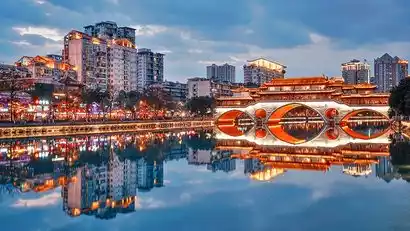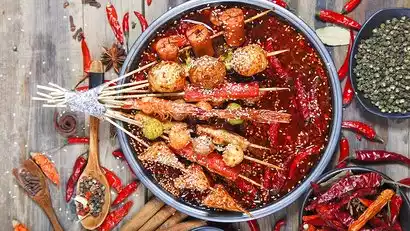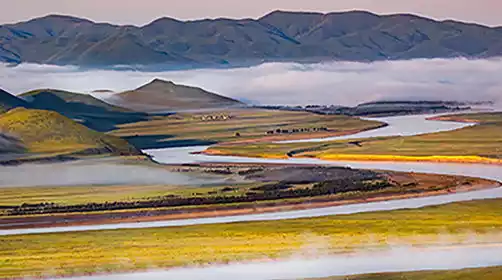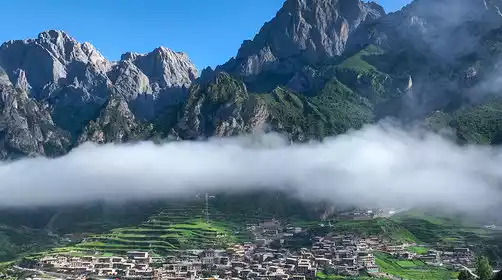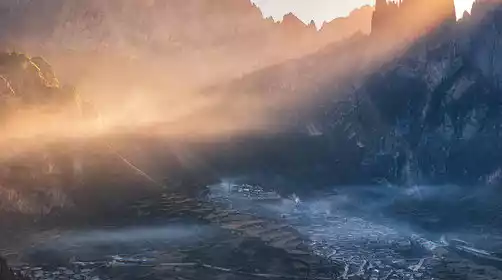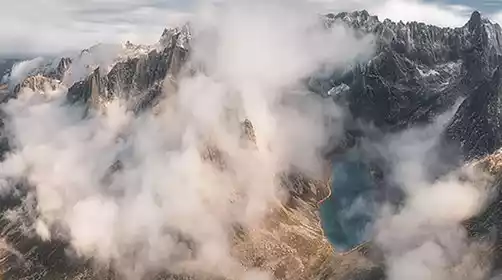Day 1: All over the country → or → Chengdu ★ Gathering day
All day
The first day is a full-day meeting day. Tourists will proceed to the meeting hotel based on their arrival time in Chengdu. At the hotel, provide the front desk with your "China-Travel Note + Name" to check in. We recommend arriving early to stroll around, rest, and experience the slow pace of Chengdu while savoring the various local snacks.
Recommended places to visit: Jinli Ancient Street, Wuhou Temple, Kuanzhai Alley, and Chunxi Road, one of China's top ten commercial streets. Food recommendations: Jinli and Kuanzhai Alley offer a variety of Chengdu snacks, including long shou (long shou), dandan noodles, pig intestine rice noodle soup, and maocai (stir-fried pork belly).
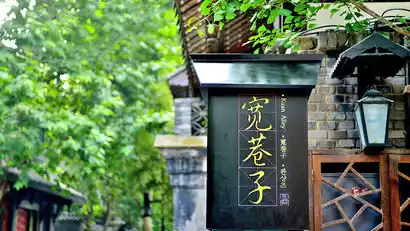
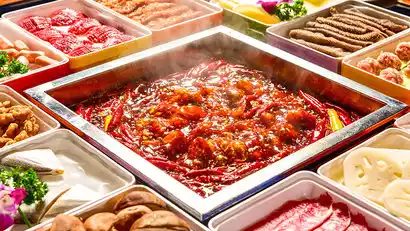
Day 2 Chengdu → Vachetalin (3400m) → Yellow River Bend (3500m-3900m) → Tangke Town (3400m)
·morning
After breakfast, we will depart from Chengdu and pass through the Miyaluo Forest Area, passing through the canyon forest. Every year in mid-to-late October, both banks along the way will turn into a world of red leaves.
·afternoon
We arrived in Hongyuan County around noon and continued our journey after lunch. The vast Hongyuan grasslands stretched out from the train window. The White River, a tributary of the Yellow River, accompanied us as we sailed into the distance. The phrase "the scenery is on the road" perfectly describes Hongyuan. We then visited the Vachi Pagoda Forest, a Buddhist sacred site covering over a thousand square meters, where hundreds of prayer wheels are surrounded by prayer flags. The rows of white pagodas and the continuous stretches of prayer flags are a sight not to be missed.
In the afternoon, we arrived at the First Bend of the Nine Bends of the Yellow River. As we waited for the sunset, the Yellow River shone red in the sunset, winding freely among the grasslands.
·night
After watching the sunset, we will stay in the nearby town of Tank.
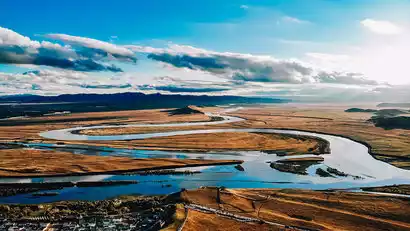
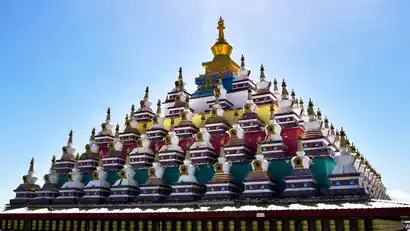
Day 3: Tangke Town → Ruoergai Grassland (3400m) → Huahu Lake (3500m) → Zhagana (3000m) → Fairy Beach → Fairy Lake
·morning
Departing early this morning, we'll journey deep into the heart of the Zoige Grassland, the filming location for the film "Return to the Wolf Pack." The film tells the true story of Li Weiyi, a female painter who, while sketching on the Zoige Grassland, rescued a wolf king orphan and named him Green. After a brief period of urban life, she decided to bring Green back to the grasslands and reunite with the wolf pack. Traveling through the film's rarely visited Zoige Grassland, amidst the vast expanse of the sky, we'll deeply understand the author Li Weiyi's words: "Freedom is more important than life; it gives meaning to all our journeys!"
Then head to [Flower Lake] to experience the beauty of the water and sky.
·afternoon
In the afternoon, we'll arrive at Zhagana, also known as the "Stone City." Resembling a vast palace, it's a true paradise.
Led by our tour guide, we'll hike to Fairy Beach, the enchanting spot featured in the "Where Are We Going, Dad?" series. We'll admire the beautiful Tibetan village, experience its tranquility and beauty, admire the ancient, rustic pedal houses shrouded in mist, and experience the simple folk customs of the area. Afterward, we'll hike another 40 minutes to Fairy Lake.
·night
We stayed at the Zhagana B&B at night. The air in Zhagana was clear, away from light pollution, and the view was full of stars.
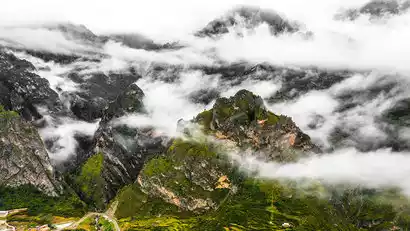
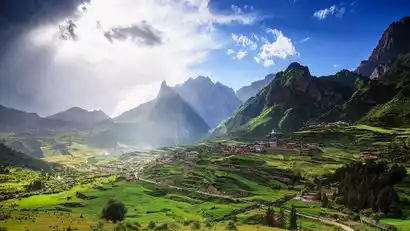
Day 4: Zhagana (3000m) → Rock Road → Saichi Temple (Gansu Temple) (3400m) → Langmusi Town (3400m)
·morning
In the morning, we changed to a local car and experienced the specially added [Locke's Road] crossing. This road not only witnessed the scientific expedition footprints of botanist Joseph Locke, but also attracted countless travelers to explore with its beautiful natural scenery and unique Tibetan culture.
·afternoon
Leaving Zhagana in good time, we arrived in Langmusi Town in the afternoon. This small town, embraced by the highland sunshine, is known as the "Little Switzerland of the East," surrounded by mountains and lush forests. After a brief rest at the hotel, we'll visit Saichi Monastery (Gansu Temple) in Gansu Province. Its architecture is even more magnificent than that of Gelug Monastery. You might even witness a fascinating debate in the square in front of the main hall. The monks clap their hands, ask questions, and wave their Buddhist beads, creating a lively atmosphere that can be felt from afar.
·night
Overnight at Langmusi Hotel.
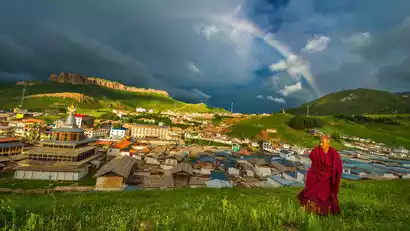
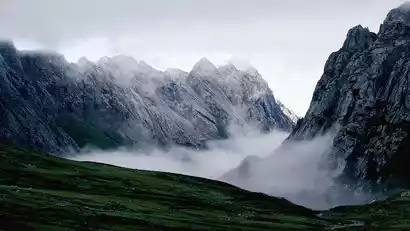
Day 5: Langmusi Town (3400m) → Gelug Monastery (Sichuan Monastery) (3400m) → Namo Grand Canyon (3500m) → Awancang Wetland (3400m) → Aba County (3300m above sea level)
·morning
In the early morning, we walked through the town shrouded in morning mist and smoke and headed to the Gelug Monastery. The main hall of the temple houses the body of the fifth Gelug Living Buddha. This hall is only open in the morning and can be entered with believers who come to worship.
·morning
We passed through the cave entrance on the back mountain of Gelug Monastery and started our light hike in Namo Grand Canyon today. We went upstream along the Bailong River. As we just entered the canyon, we saw towering cliffs on both sides and the road was narrow. After walking a few dozen steps, the road suddenly opened up.
·afternoon
In the afternoon, we will depart by car to Maqu [Awancang Wetland], which was once selected as the first of the "Five Major Grassland Wetlands in China" by China National Geographic.
·night
Check into the hotel in Aba County in the evening.
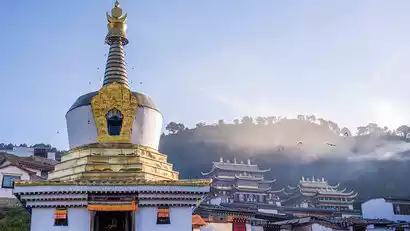
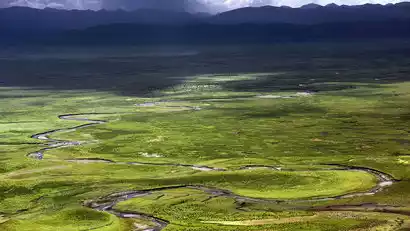
Day 6: Aba County (3300m) → Andou Temple → Lianbaoyezhe (4200m) → Gemo Temple (3800m) → Aba County (3300m)
·morning
Depart in the morning and visit the historic Andou Temple in Aba Prefecture along the way. If the main scripture hall is open, you will be amazed by the wonderful and exquisite thangkas collected there.
Due to the poor road conditions leading to [Andou Temple] and its frequent closures, in order to ensure everyone's time to visit Lianbaoyezhe and Gemo Temple, we are currently not arranging a trip to Andou Temple. Thank you for your understanding and support!
Arrive at Lianbaoyezhe in the morning and depart from the visitor center. Walk along the wooden plank road in the scenic area, admiring the rocks scattered on both sides of the river valley and the towering valleys. It takes half an hour to hike to Zhagarcuo. Most of the promotional photos of the scenic area are from here. Fish swim in the lake and the surrounding stone peaks pierce the sky like sharp knives. It is magnificent and has the tragic momentum of "a lonely city among ten thousand high mountains". In summer, the lakeside will turn into a sea of flowers. Tourists can camp and have picnics by the lake.
·afternoon
After having fun, we returned to Aba County in the afternoon and went to visit Gemo Temple, which is one of the three major Gelugpa monasteries of Tibetan Buddhism in Aba Prefecture, Sichuan Province. The Chinese conjoined Buddhist temple building "Faxiyuan" is located here.
·night
Check into the hotel in Aba County in the evening.
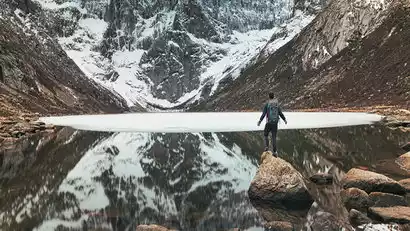
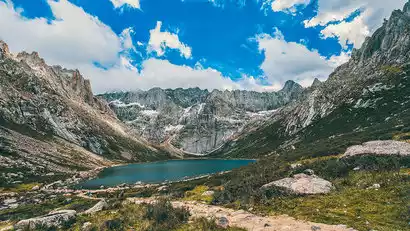
Day 7 Aba County (3300m) → Chengdu ★ Disbandment
All day
After breakfast, depart for Chengdu.
Passing through New Wenchuan and Yingxiu New City, rows of resettlement housing communities built in the style of Qiang villages and western Sichuan folk houses, new schools, new hospitals, and new urban infrastructure have made Wenchuan a new Wenchuan reborn from the ashes.
Returned to Chengdu and disbanded.
